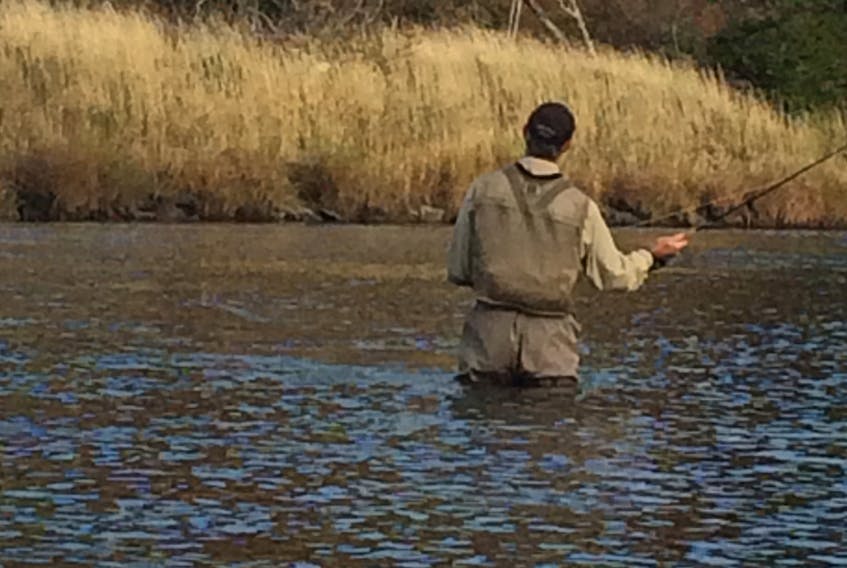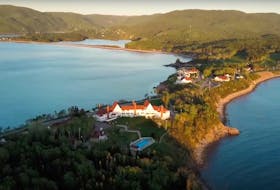Fisheries and Oceans Minister Bernadette Jordan announced millions of dollars in funding Wednesday from Ottawa for the protection of aquatic species in Canada.
But it wasn’t really news.
It was more of a reminder of funding announced in the Liberal budget of 2018 and some details of how it is being doled out.
In the 2018 budget the Trudeau government established a $1.3 billion Nature Legacy Fund, and a $55 million, five-year Canada Nature Fund for Aquatic Species at Risk (CNFASAR) was part of that program.
In her Nov. 25 news release, Jordan ‘formally’ announced the $52.3 million in funding under CNFASAR.
The funding, she said, is supporting 50 multi-year projects across Canada, some of which are already underway.
A spokesperson for the minister’s office told SaltWire the formal announcement of the funding was delayed due to the pandemic and most of work on these projects already begun.
Thirteen projects in Atlantic Canada will collectively get $12.1 million through the Species at Risk program.

The projects announced today include approximately $2.9 million for the Nova Scotia Salmon Association to carry out conservation planning for watersheds within the Southern Uplands region of Nova Scotia. This project aims to address threats that are common to multiple species at risk, as well as to implement restoration activities to support improvement of aquatic habitats.
The North Shore MicMac District Council-Anqotum Resource Management will receive up to $725,150 over four years to carry out a project in the Miramichi River system to enhance cold-water habitats to serve as refuges for Atlantic Salmon, and for other native species such as Brook Trout.
And the World Wildlife Fund (WWF) Canada in Newfoundland and Labrador will work with harvesters to reduce fishing mortality of Golden cod, a genetically distinct Atlantic cod population found in the Gilbert Bay Marine Protected Area. This project will receive up to $368,180.
“With the Canada Nature Fund for Aquatic Species at Risk, we are taking a distinct, strategic approach by targeting regions, rather than individual species,” said Jordan in the news release. “Working with conservation experts on the ground, we’re investing in projects that have the greatest potential to make a lasting impact on our natural environments here in Atlantic Canada, and across the country.”
The Atlantic Projects
New Brunswick
Southern Gulf of St. Lawrence Rivers Priority Area.
The North Shore MicMac District Council Anqotum Resource Management will receive up to $725,150 and, working with the Miramichi Salmon Association, the Atlantic Salmon Federation and the University of New Brunswick, will carry out a project in the Miramichi River system to enhance cold-water habitats to serve as refuges for Atlantic Salmon, Brook Floater and other species such as Brook Trout.
The Gespe'gewaq Mi'gmaq Resource Council will receive up to $661,600 to identify and restore priority habitat for Atlantic Salmon, Atlantic Sturgeon and American Eel in the Restigouche watershed.
The Canadian Rivers Institute at the University of New Brunswick will receive up to $473,000 to work in collaboration with the Atlantic Salmon Federation, Anqotum Resource Management Inc and the Ocean Tracking Network for projects in the Miramichi River and in the Gulf of St. Lawrence area. The group will examine potential effects of Striped Bass predation on American Eel and Atlantic Salmon. This project will contribute to the building of relationships among partners including the Mi’kmaq of New Brunswick.
The Maliseet Nation Conservation Council will get up to $896,500 for projects to improve freshwater fish habitat for the Atlantic Salmon, American Eel and Striped Bass within the Wolastoq (St. John River) watershed, N.B. through the removal of barriers to fish passage and restoration of deteriorated habitat.
Bay of Fundy and Southern Uplands Watersheds Priority Area
The World Wildlife Fund (WWF) Canada will receive up to $746,320 to carry out a
‘priority threat’ analysis for the Saint John River watershed.
The Peskotomuhkati Nation at Skutik received $140,000 in funding to begin a project to reconnect the Skutik/St. Croix River and Passamaquoddy Bay ecosystems by identifying passage opportunities for migratory fishes at the three mainstream dams and throughout the watershed.
PEI
Southern Gulf of St. Lawrence Rivers Priority Area
The Abegweit Conservation Society will receive up to $1,367,600 to carry out work in the Midgell, Morell and Mill rivers of Prince Edward Island. The aim of this project is to better understand and respond to threats to freshwater species such as Atlantic Salmon and American Eel. The work will include removing barriers, habitat restoration activities and monitoring of species.
Nova Scotia
Southern Gulf of St. Lawrence Rivers / Bay of Fundy and Southern Uplands Watersheds Priority Areas
The Nova Scotia Salmon Association will receive up to $916,232 to restore ecosystems in the West and South Rivers (Antigonish), the Mabou and the Margaree Rivers in Cape Breton. This project will support recovery actions for the protection of Atlantic Salmon, American Eel and Atlantic Sturgeon and foster collaboration among Indigenous Peoples, stakeholders and other parties.
The Nova Scotia Salmon Association will receive up to $2,916,491 for a second project to conduct conservation planning for priority watersheds within the Southern Uplands region of Nova Scotia.
The Confederacy of Mainland Mi’Kmaq will receive up to $2,308,257 to undertake a Two-Eyed Seeing approach, connect Mi’kmaq ecological knowledge and western science, to improve fish habitat in the St. Croix River, Stewiacke River and Southern Gulf of Saint Lawrence watersheds.
Fishing Interactions Priority Threat
Oceans North will receive up to $375,000 in funding to increase knowledge sharing between DFO and Indigenous fishers, especially related to bycatch, identify opportunities to adapt existing management measures, implement national policy including the bycatch policy, identify stewardship actions and best practices to reduce the impact on bycatch of marine fish species at risk.
Newfoundland and Labrador
Fishing Interactions / Physical and Acoustic Disturbance Priority Threats
The Canadian Parks and Wilderness Society, Newfoundland and Labrador Chapter, will receive up to $219,920 to develop an online ecosystem map to highlight the species present in the waters of Newfoundland and Labrador, with an emphasis on species at risk.
WWF-Canada will receive up to $368,180 to reduce fishing mortality of Golden cod, a genetically distinct population of Atlantic cod present in the Gilbert Bay Marine Protected Area. The project will, among other things, measure the effectiveness of shifting harvesters from gillnets to cod pots in the waters adjacent to the Gilbert Bay MPA.









